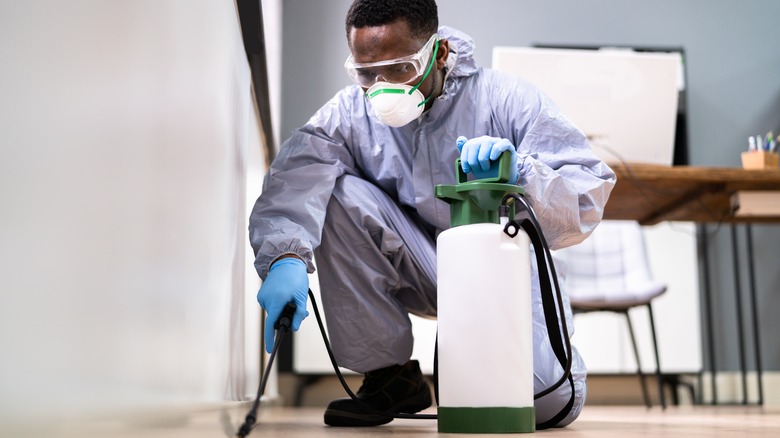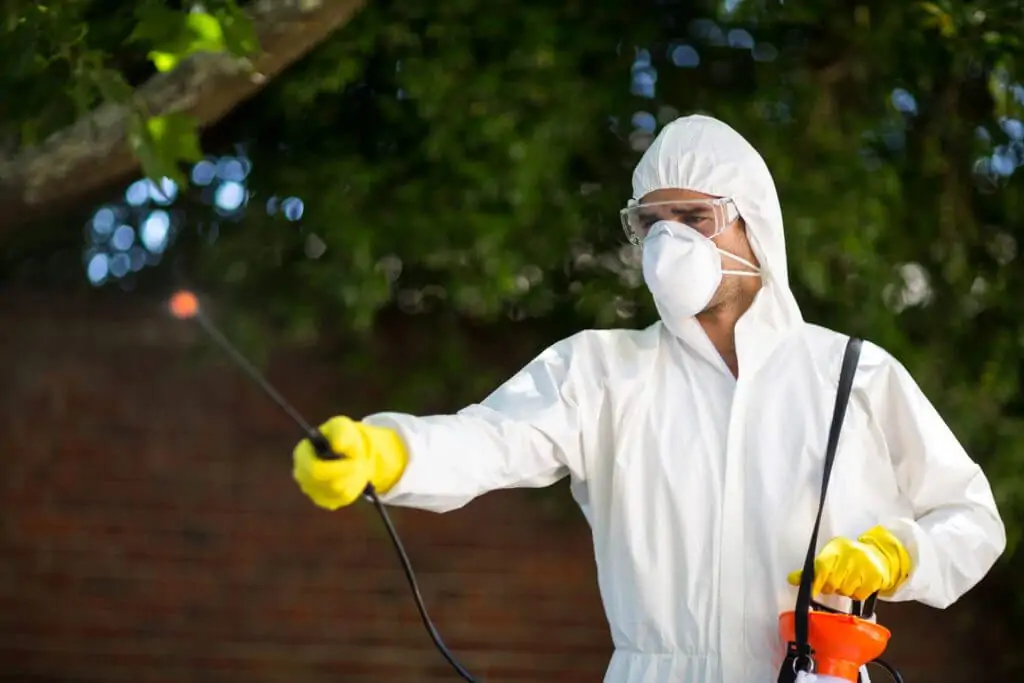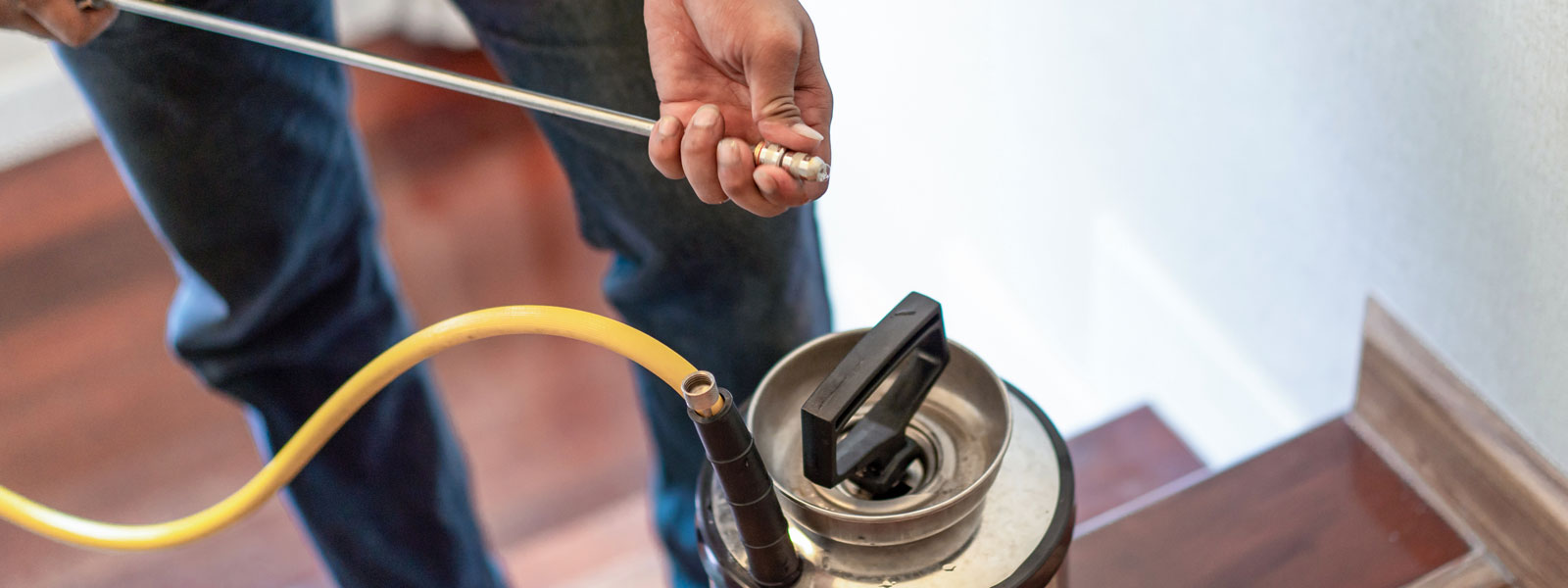Reliable Pest Control Clovis Solutions: Keep Your Home Safe
Reliable Pest Control Clovis Solutions: Keep Your Home Safe
Blog Article
Comprehending the Various Approaches to Insect Control: A Comprehensive Guide

Natural Insect Control Techniques
Utilizing green methods such as buddy planting and organic bug control is vital for efficiently handling insects in agricultural setups. Buddy planting entails growing different plants in proximity to prevent parasites, enhance nutrient uptake, and enhance overall plant health.
Biological parasite control includes introducing natural killers or microorganisms to control pest populaces. Ladybugs, for example, feed on aphids, managing their numbers without the need for chemical pesticides. An additional example is making use of Bacillus thuringiensis (Bt), a germs that targets specific insect parasites while being harmless to human beings, animals, and beneficial pests.
These environment-friendly methods not only lower the reliance on artificial pesticides however also assist preserve biodiversity and soil wellness. By incorporating all-natural pest control approaches into agricultural techniques, farmers can accomplish lasting bug administration while decreasing unfavorable influence on the environment.

Chemical Pest Control Solutions
In enhancement to all-natural pest control methods, the use of chemical parasite control solutions plays a considerable duty in properly managing pest populations in agricultural atmospheres. Chemical parasite control remedies are formulated to target particular bugs that might create considerable damage to crops. These solutions typically consist of artificial chemicals that are created to get rid of parasites quickly and efficiently.
One of the key advantages of chemical pest control services is their effectiveness in controlling pest infestations on a large scale. Farmers can apply these solutions using various methods such as spraying, airing out, or seed therapy to shield their plants from unsafe pests, weeds, and conditions. In addition, chemical parasite control remedies are reasonably very easy to use and can provide quick outcomes, assisting farmers protect their yields and decrease financial losses.
Nonetheless, it is necessary to utilize chemical pest control remedies sensibly to minimize possible unfavorable effect on the atmosphere, non-target microorganisms, and human health and wellness. Proper application strategies, adherence to safety standards, and regular surveillance are important to ensure the liable use of chemical bug control solutions in farming practices.
Biological Parasite Control Approaches
Biological parasite control approaches take advantage of natural predators or virus to manage bug populations in agricultural setups effectively. This technique supplies a sustainable and environment-friendly option to pest management, minimizing the dependence on synthetic chemicals and lessening harm to the environment. One typical organic control method is the intro of all-natural enemies, such as ladybugs or parasitical wasps, to target details insects. These predators prey on the pests, assisting to manage their populaces normally - pest control clovis.
Another organic control approach involves utilizing virus like viruses, microorganisms, or fungi to contaminate and eliminate bugs. These microbial representatives can be splashed on crops or introduced into the soil to battle numerous parasites without damaging beneficial insects or various other wild animals. Furthermore, the usage of scents to interrupt the mating patterns of insects is another effective organic control approach. By conflicting with their recreation, this technique helps to lower parasite populaces without the demand for chemical treatment. Generally, biological pest control methods provide a sustainable and targeted service to pest management in agriculture.
Integrated Bug Monitoring (IPM)
Integrated Bug Management (IPM) is a thorough method that incorporates various bug control strategies to properly manage and lessen pest populations in agricultural systems. IPM concentrates on long-term prevention of parasites through a mix of biological, cultural, physical, and chemical control approaches. By integrating these different techniques, IPM intends to decrease dependence on look here chemical pesticides, decrease environmental effect, and advertise lasting pest administration techniques.
One key aspect of IPM is making use of organic controls such as natural predators, parasites, and microorganisms to manage pest populations. This technique uses the power of nature to maintain a balance between insects and their all-natural adversaries without creating harm to the environment.
Furthermore, IPM includes social techniques like plant cleanliness, rotation, and habitat adjustment to develop negative problems for parasites and check my blog interrupt their life cycles. Physical controls such as composts, catches, and barriers are likewise utilized to avoid parasite infestations.
Physical and mechanical Parasite Control Strategies
Using non-chemical techniques, such as mechanical and physical pest control strategies, is an important element of extensive insect management approaches, constructing upon the structure of Integrated Insect Management's all natural technique. Mechanical bug control involves using physical obstacles or traps to avoid pests from accessing and harming crops or frameworks. This technique can include strategies like mounting screens on windows, utilizing row covers in agriculture, or using sticky catches to catch pests.
Physical parasite control techniques, on the other hand, concentrate on straight eliminating parasites via physical methods. Utilizing heat therapies to eliminate bed pests or vacuuming up insects like ants or spiders can be efficient ways to handle infestations without the usage of chemicals. By incorporating these physical and mechanical insect control techniques into an Integrated Parasite Administration strategy, individuals and experts can reduce dependence on chemicals while still efficiently minimizing other and handling pest populaces damage.
Final Thought

In addition to all-natural parasite control approaches, the use of chemical bug control services plays a significant role in effectively managing pest populaces in farming atmospheres.One of the essential benefits of chemical bug control services is their effectiveness in regulating insect infestations on a huge scale.Integrated Pest Monitoring (IPM) is an extensive approach that incorporates different insect control techniques to successfully manage and lessen pest populations in agricultural systems.Making use of non-chemical techniques, such as physical and mechanical pest control methods, is a critical element of thorough parasite administration techniques, developing upon the foundation of Integrated Bug Monitoring's alternative approach. By integrating these mechanical and physical bug control techniques right into an Integrated Insect Management strategy, individuals and experts can decrease reliance on pesticides while still properly minimizing and handling pest populaces damages.
Report this page